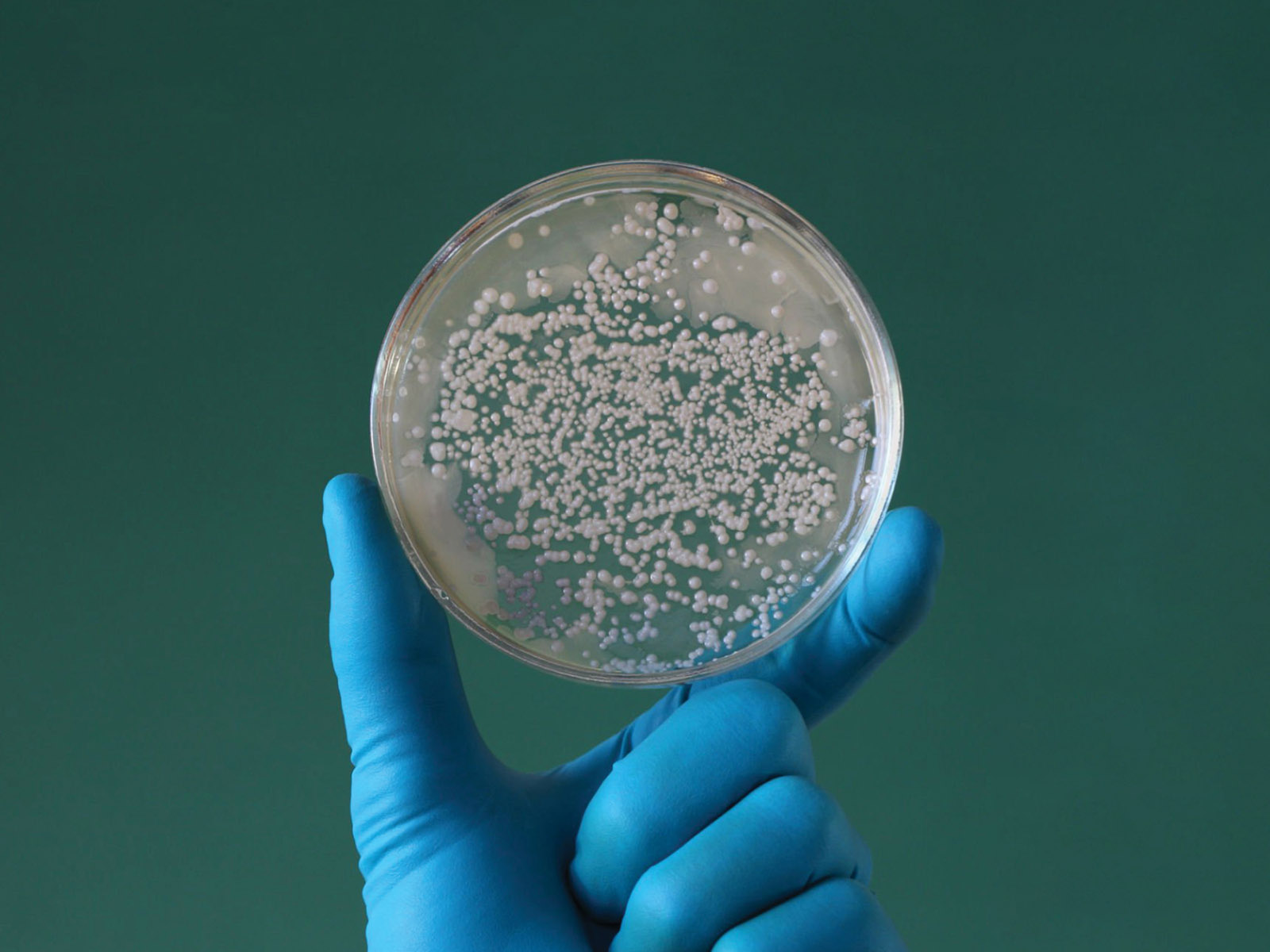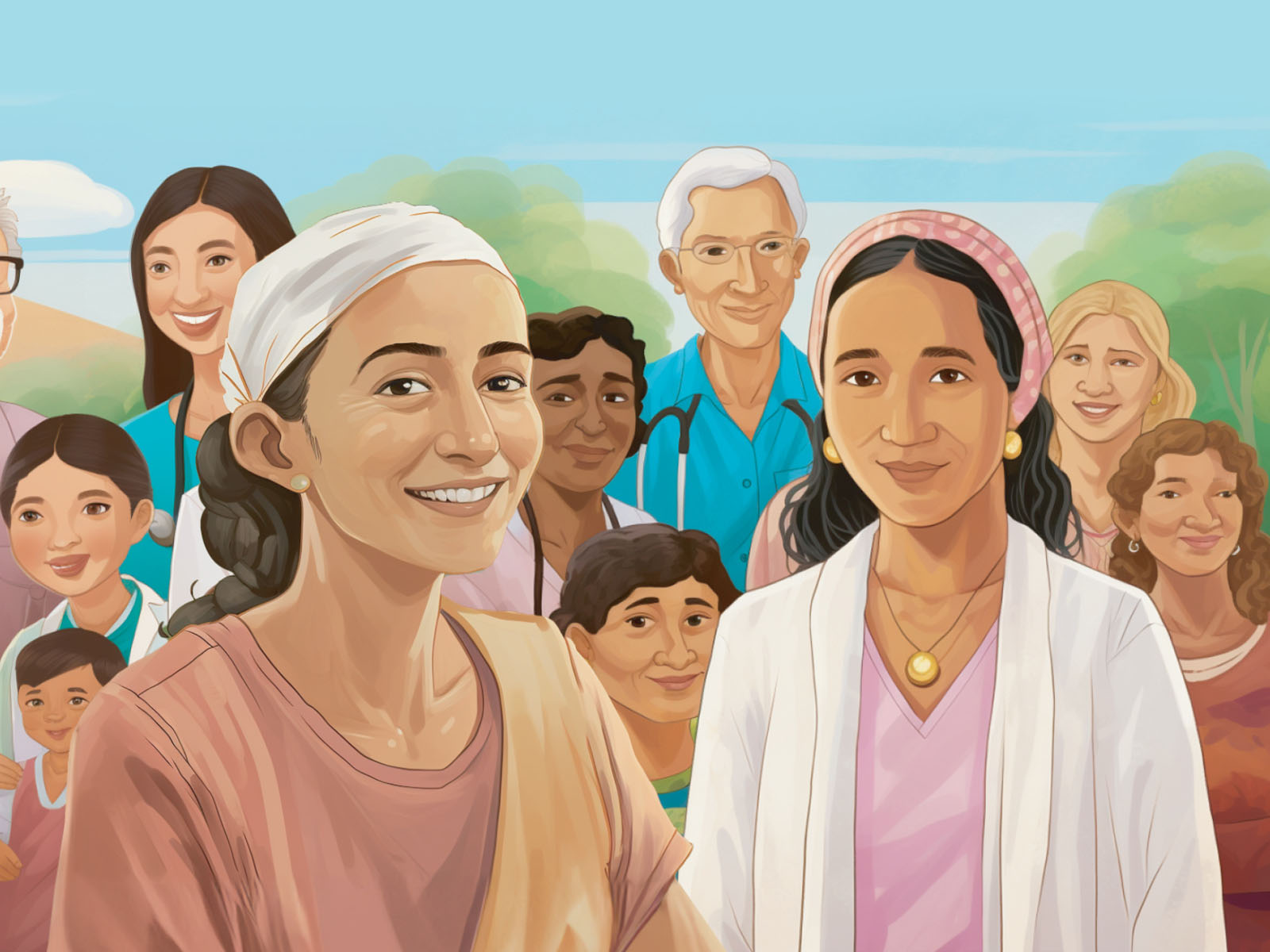
Issue 48
Nov 2023
IN VIVO

In light of evolving healthcare needs in Singapore, where creative problem-solving skills and technological capabilities are warranted for the provision of holistic and patient-centric care, three new curricula initiatives have been introduced by the National University of Singapore (NUS) to better prepare future doctors, nurses, dentists and pharmacists for the challenges that they will face.
Starting August 2023, the National University of Singapore (NUS) has implemented a new interdisciplinary common curriculum for undergraduates in Dentistry, Medicine, Nursing and Pharmacy. This timely repositioning of the University’s healthcare education tailors the development of healthcare talents in response to Singapore’s ‘Healthier SG’ vision, a new national initiative focusing on integrated and preventive care.
The ‘Healthier SG’ vision entails a major reform of the healthcare system to help Singaporeans age in place through the use of technology and analytics. This requires doctors, nurses, dentists and pharmacists to work together to support and holistically care for the community in all aspects of their healthcare needs. These professionals trained by NUS would need to be equipped with the knowledge, skills, and attitudes to help shape a resilient and responsive healthcare system in Singapore.

870
first-year students from Dentistry, Medicine, Nursing and Pharmacy would be taking the new common curriculum
About 870 first-year students from Dentistry, Medicine, Nursing and Pharmacy would take five specially-designed courses together, and collaborate across the four healthcare disciplines as part of their learning journey. The common curriculum, which is to be completed in the first two years of their candidature, will complement the existing curriculum of the respective degree programmes.
In conjunction with the new Common Curriculum for Healthcare Professional Education, the NUS Yong Loo Lin School of Medicine (NUS Medicine) has also enhanced its curriculum for Medicine undergraduates by implementing a Minor that delves into Artificial Intelligence (AI) and Biomedical Informatics, to better prepare students for the new era of AI-driven digital medicine. Medical students will need to complete this Minor during their undergraduate candidature.
Students from other NUS faculties, schools and colleges would also have the opportunity to acquire knowledge about the workings of modern healthcare systems through a new Minor in Integrative Health.
“Health and well-being are more than just caring for the sick. To help people stay healthy as long as they live, and better care for them when they are ill, we need to look beyond the traditional confines of medicine and science, and draw upon other disciplines. Health sciences education should prepare tomorrow’s doctors, nurses, dentists and pharmacists to harness the power of AI, computing, business analytics, even music and the arts, in the provision of holistic, patient-centric healthcare,” said Professor Chong Yap Seng, Dean of NUS Medicine.
NUS Common Curriculum for Healthcare Professional Education
The specially curated two-year common curriculum draws on the academic content from Dentistry, Medicine, Nursing, and Pharmacy. It seeks to cultivate in students from Dentistry, Medicine, Nursing, and Pharmacy the awareness of social issues and their impact on health, teamwork, communication skills, professionalism, digital literacy, and interprofessional education.
A key content pillar in the common curriculum is the Social and Behavioural Determinants of Health, which educates healthcare students on the practical, social and emotional needs that affect individuals’ health and well-being in communities. This pillar forms the foundation for the other four content pillars, which cover areas such as professionalism and ethical practice, teamwork and communication skills, as well as data and digital literacy.
Health sciences education should prepare tomorrow’s doctors, nurses, dentists and pharmacists to harness the power of AI, computing, business analytics, even music and the arts, in the provision of holistic, patient-centric healthcare.”
Students also participate in interdisciplinary experiential learning through the Longitudinal Patient Experience, where teams of students from various healthcare disciplines will visit patients in their homes and living environments continually for one year. This immersive learning journey offers students opportunities to apply the concepts learnt in class to holistic care of their patients. At the same time, it fosters empathy and resilience in the students.
“I attended the pilot session for the common healthcare curriculum in August 2022. It was eye-opening to learn that we should adopt a multifaceted approach to health, and not view health as merely a physical condition or illness. It was also interesting to understand how non-medical factors, such as social and environmental factors, play an important role in how doctors view and manage a patient’s health. This will be an essential skill for me as a doctor in future,” said Ms Yunn Honey Aye Kyaw, Phase II student at NUS Medicine.
She added, “Personally, the course, Social and Behavioural Determinants on Health, which delved into health in vulnerable groups, stood out for me. It highlighted the various barriers vulnerable patients face, such as the social, economic, environmental or political aspects of their lives, which affect how they receive care. These sessions have allowed me to reflect how I can be a better advocate for health, and reinforced the importance of being empathetic towards my future patients.”
It was also interesting to understand how non-medical factors, such as social and environmental factors, play an important role in how doctors view and manage a patient’s health. This will be an essential skill for me as a doctor in future.”
Minor in Biomedical Informatics
Harnessing data and technology to improve patient care, advance medical research, enhance population health management, Biomedical informatics holds tremendous potential in the healthcare system and can shape the future of healthcare delivery.
The Minor in Biomedical Informatics offered by NUS Medicine combines healthcare, data science, AI, and information technology to provide medical students with the necessary knowledge and skills to stay ahead of the healthcare curve.
Students develop skills in large language models, data management, health information systems, biomedical data analysis, and medical decision support systems. They also learn core skills such as evidence-based clinical decision-making, effective communication, strategic leadership, and entrepreneurship. All first-year medical students in the current Academic Year 2023/2024 are required to complete this Minor during their undergraduate candidature.

From left: Year 2 students Moh Xin Qian Hilary from the NUS Faculty of Dentistry, Muhammad Amir Bin Mohamed Imran from NUS Nursing, Kanesananthan Yahrliny from the NUS Department of Pharmacy, Faculty of Science, and Yunn Honey Aye Kyaw from NUS Medicine.
Minor in Integrative Health
A major aspect of integrative health involves the provision of optimal health and wellness, which will rely on advancements in areas such as healthcare technologies, environmental and building design, psychological care, data analytics, health economics, and healthcare innovations.
The new Minor in Integrative Health, which is open to first, second and third-year undergraduate students from non-healthcare disciplines from Academic Year 2023/2024, aims to educate and inspire students to lead, implement, and coordinate health-promoting research and development efforts using an interdisciplinary and cross-domain approach. Students will also cultivate an interdisciplinary mindset to solve complex health issues, and enhance individual and population health.
This Minor is offered by NUS Medicine, together with the Department of Information Systems and Analytics at the NUS School of Computing, as well as the Department of Architecture, Division of Industrial Design, and Department of The Built Environment at NUS College of Design and Engineering. It is also designed in consultation with the NUS Centre for Future-ready Graduates and industry partners from sectors such as healthcare, medical technology, pharmaceuticals, consulting, design, architecture, and facilities management.
Students will complete a total of five courses over two years or more. The inaugural cohort will comprise 50 students with the prospect of increasing the intake over the next three years.
More from this issue



